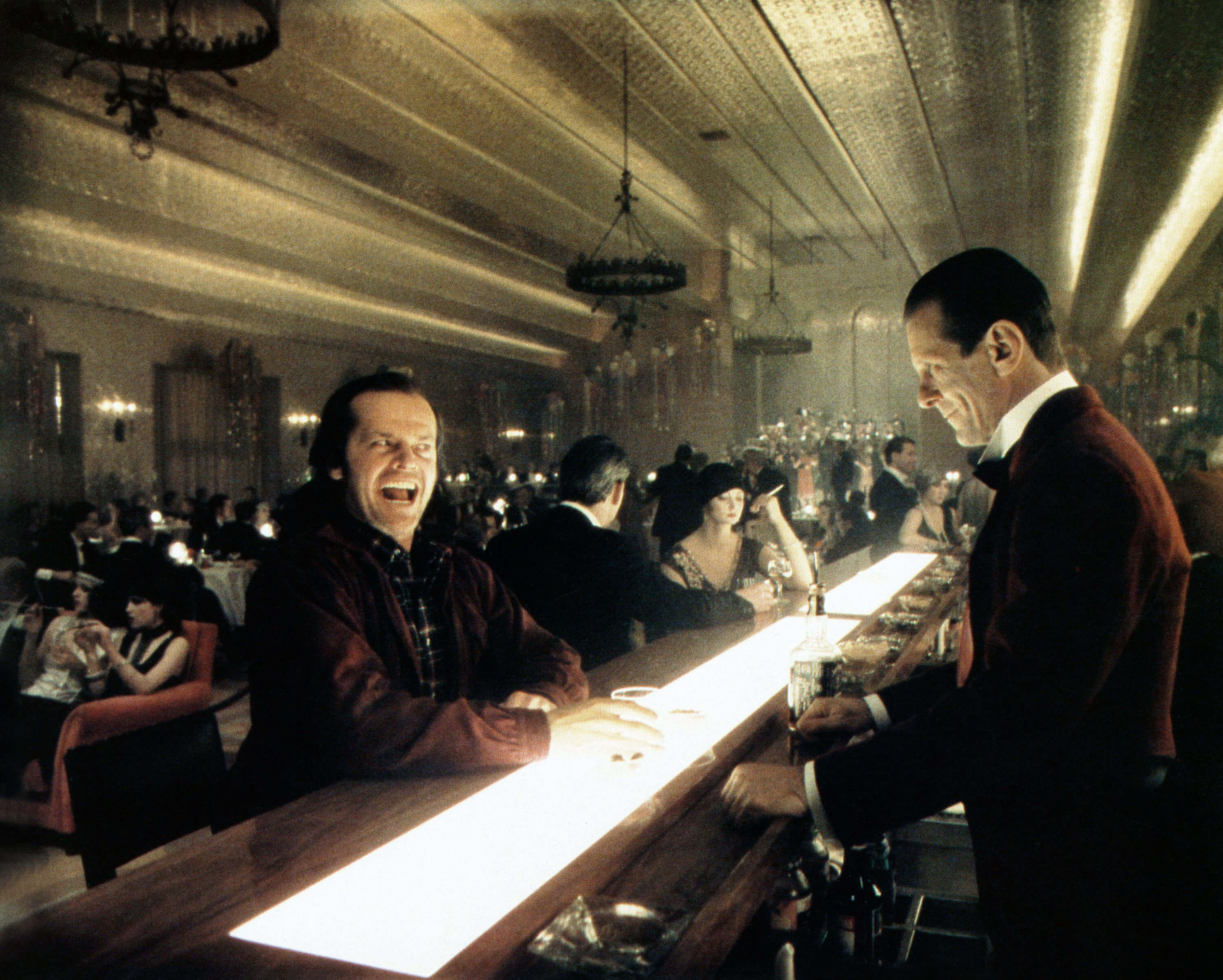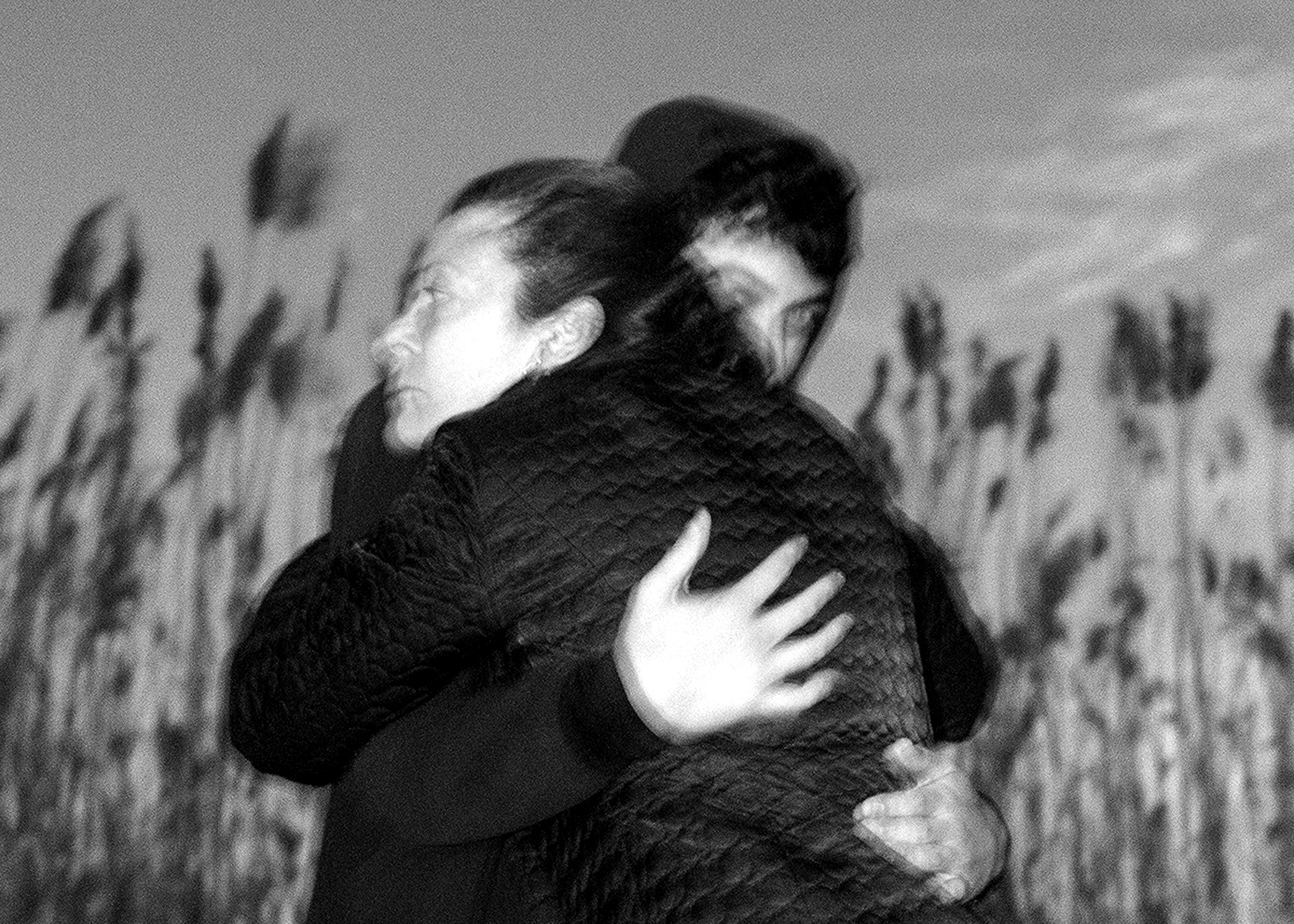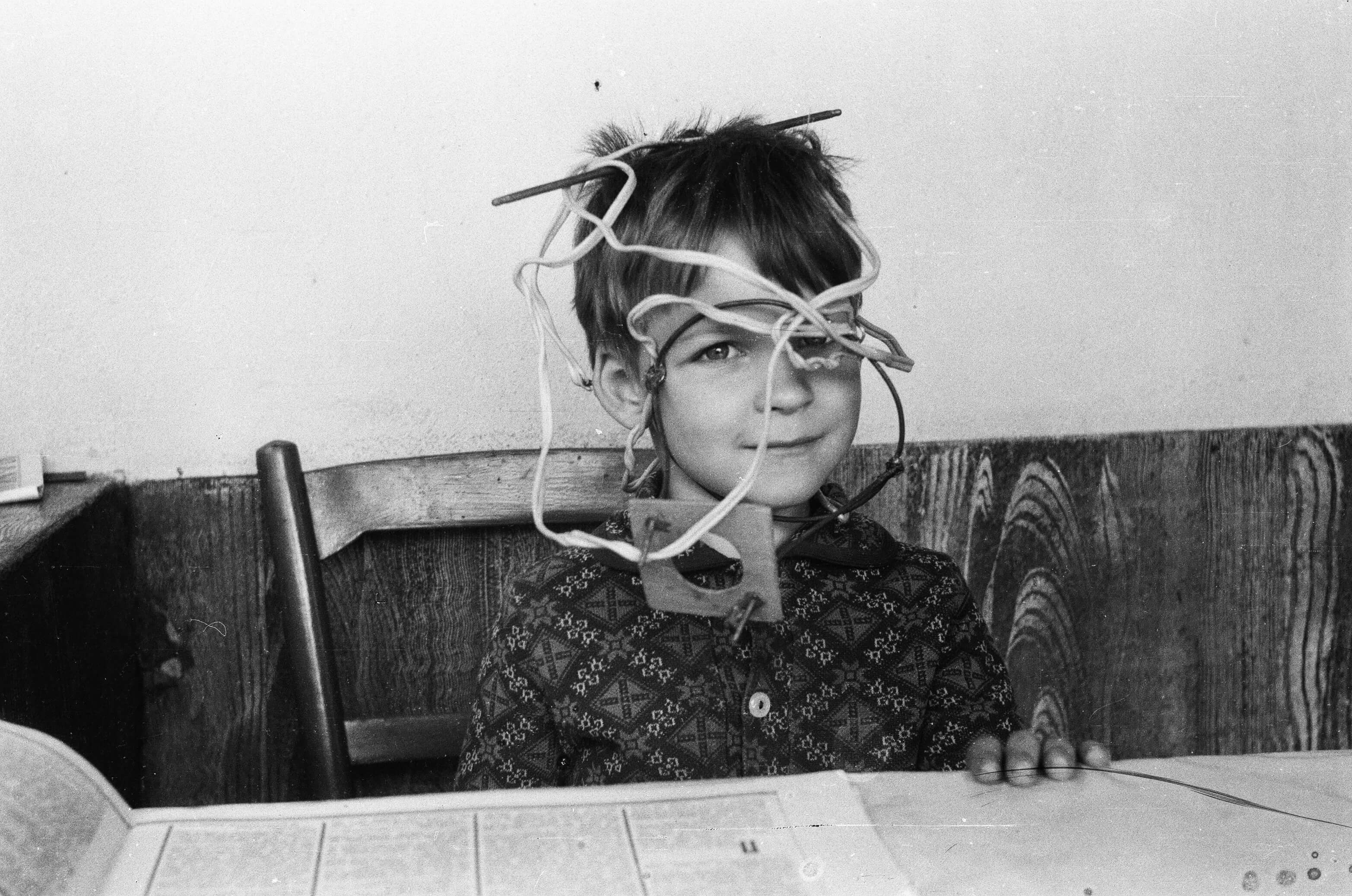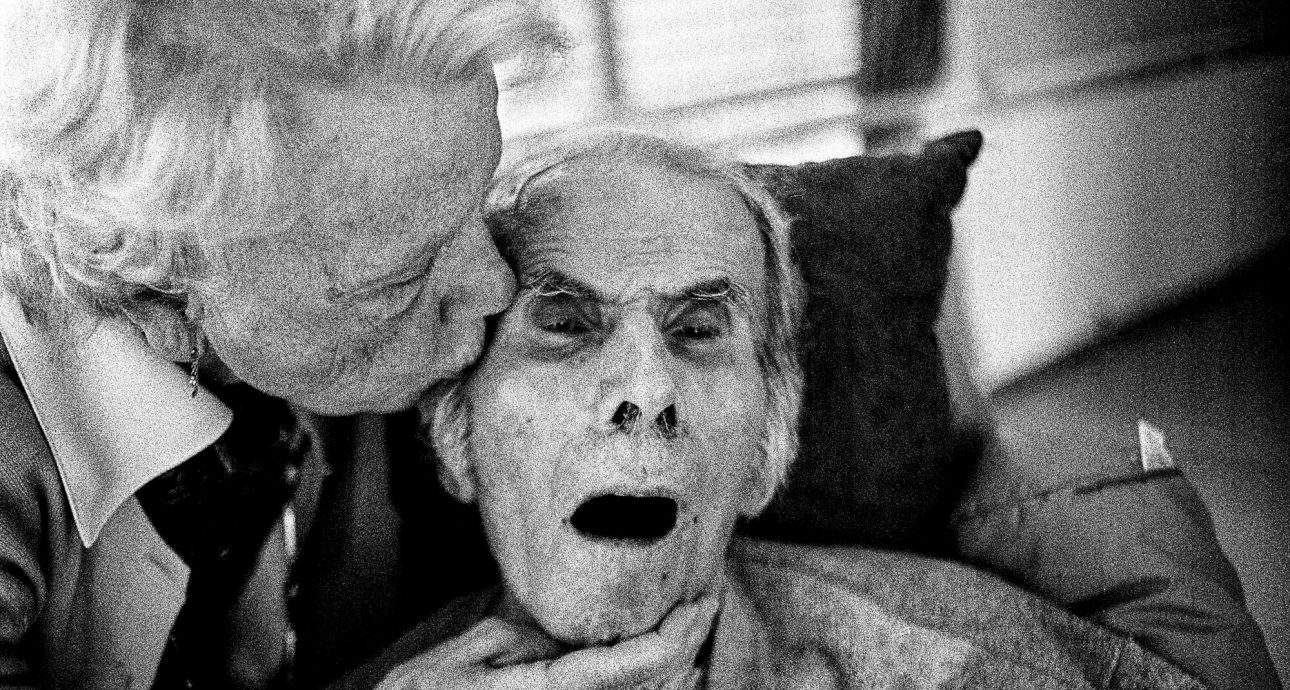
I look at you disappearing
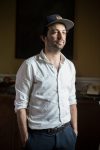
Published in numerous French and international publications: Polka Magazine, Libération, Le Monde, L’Obs, Paris Match, Blick, and others. Since 2016, covering socio-political news for Libération.
— My grandpa was diagnosed with Alzheimer’s disease when I was eight years old. He lived in a retirement home for a couple of years. Meanwhile, my grandma continued to visit him while living alone in their house. As I grew up, I made the decision to capture photographs of my grandpa in black and white, symbolizing his connection to the past, while portraying my grandma in vibrant colors, representing the vitality of her current life, despite being alone.
I worked on this project for 15 years, starting in 2008. It was a way for me to connect with and understand my grandfather better. Unfortunately, my grandfather passed away in 2010, and I stopped taking pictures. I believed the project had come to an end. However, in 2015, my grandmother fell ill with dementia associated with Alzheimer’s disease. She required round-the-clock care and was no longer able to live independently, so we had to move her to a retirement home.
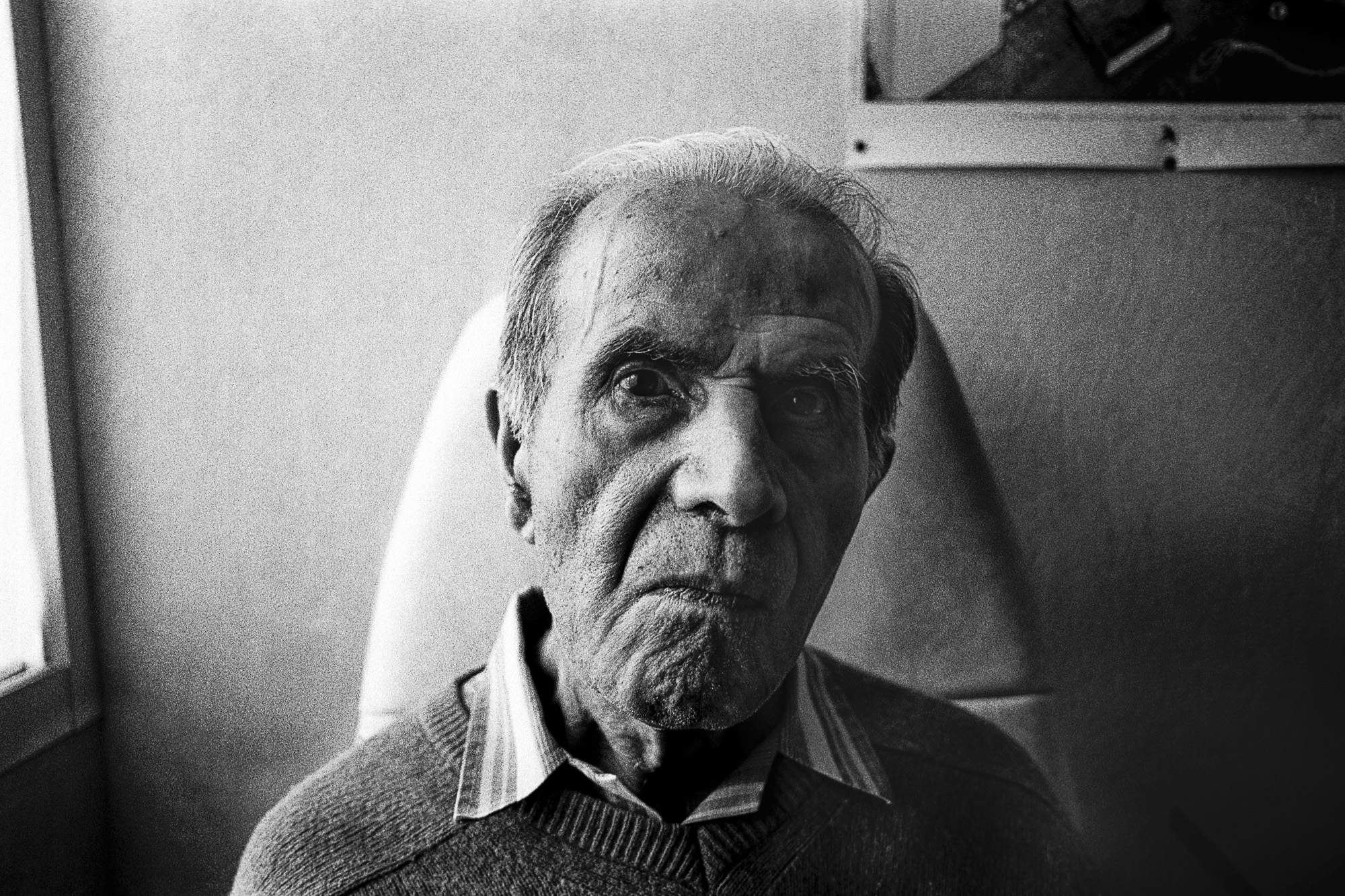
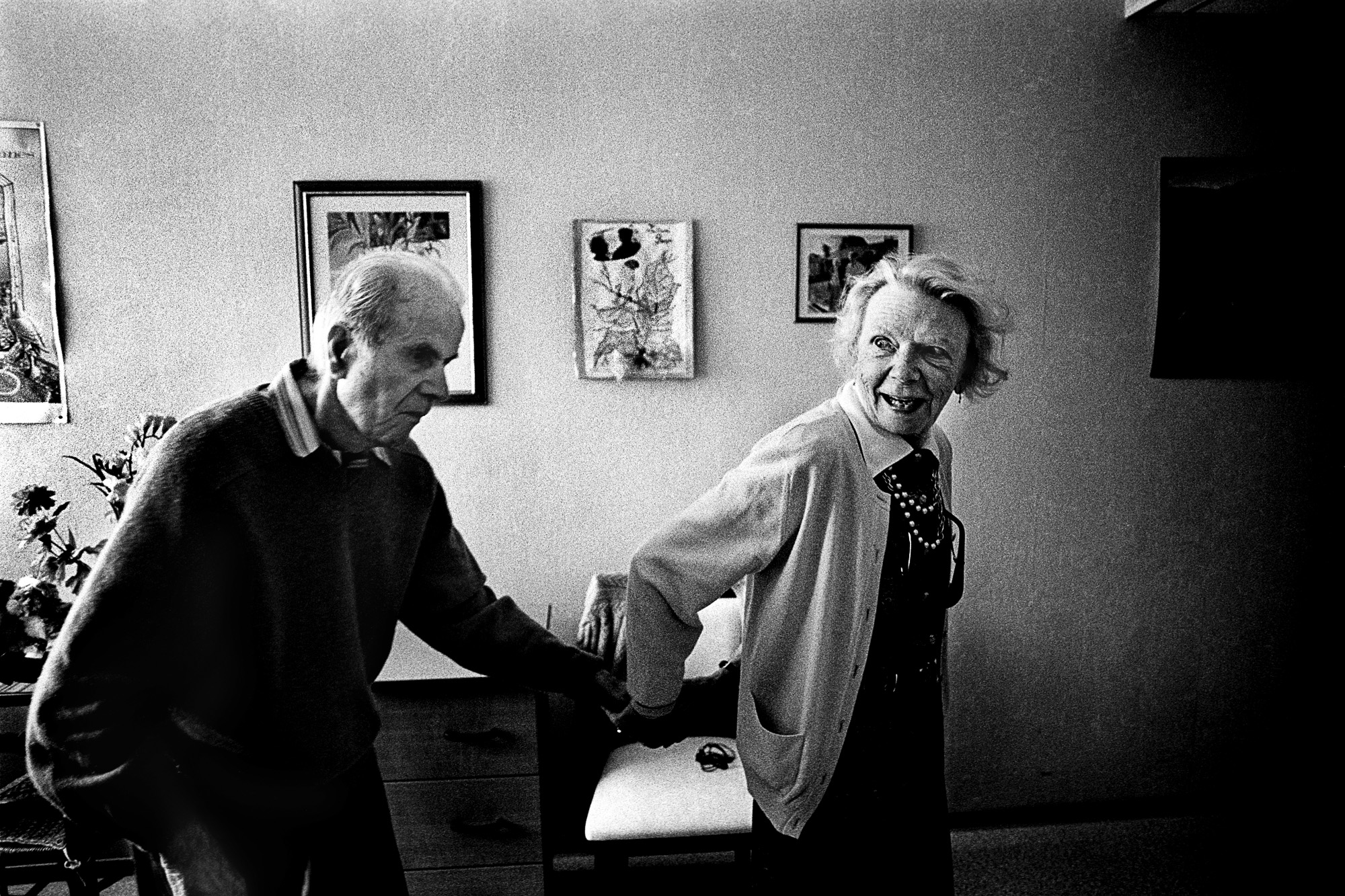
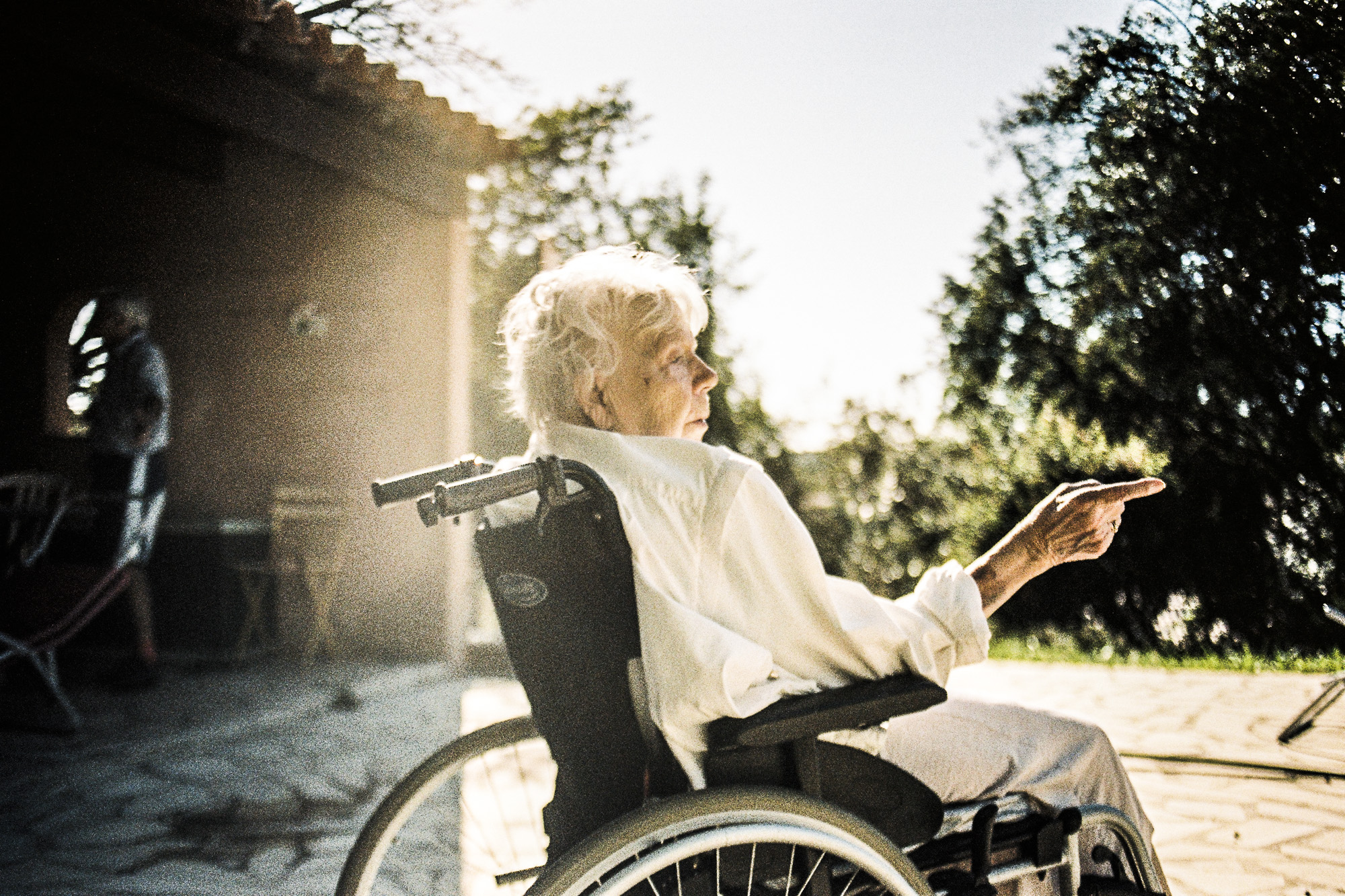
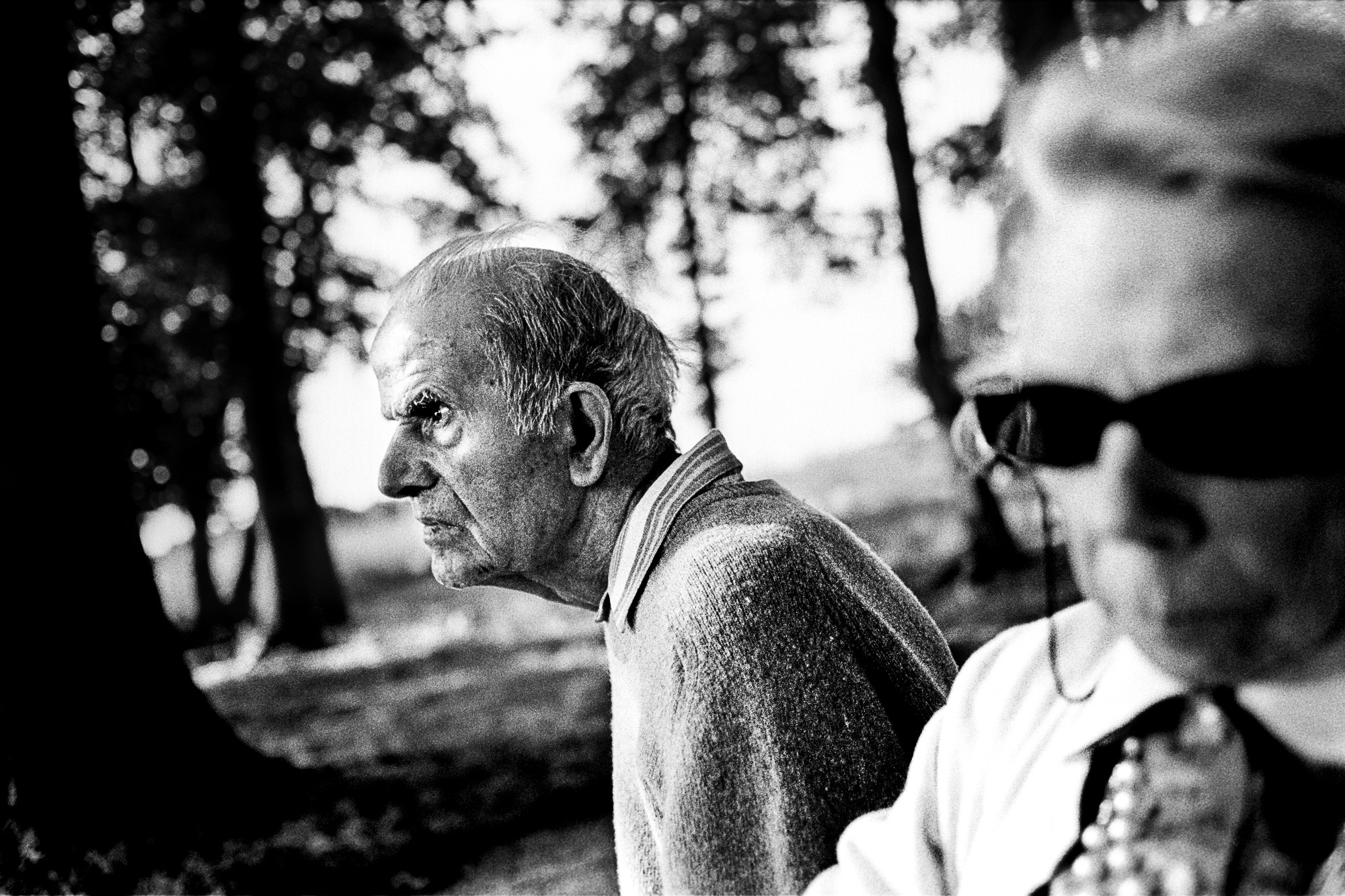
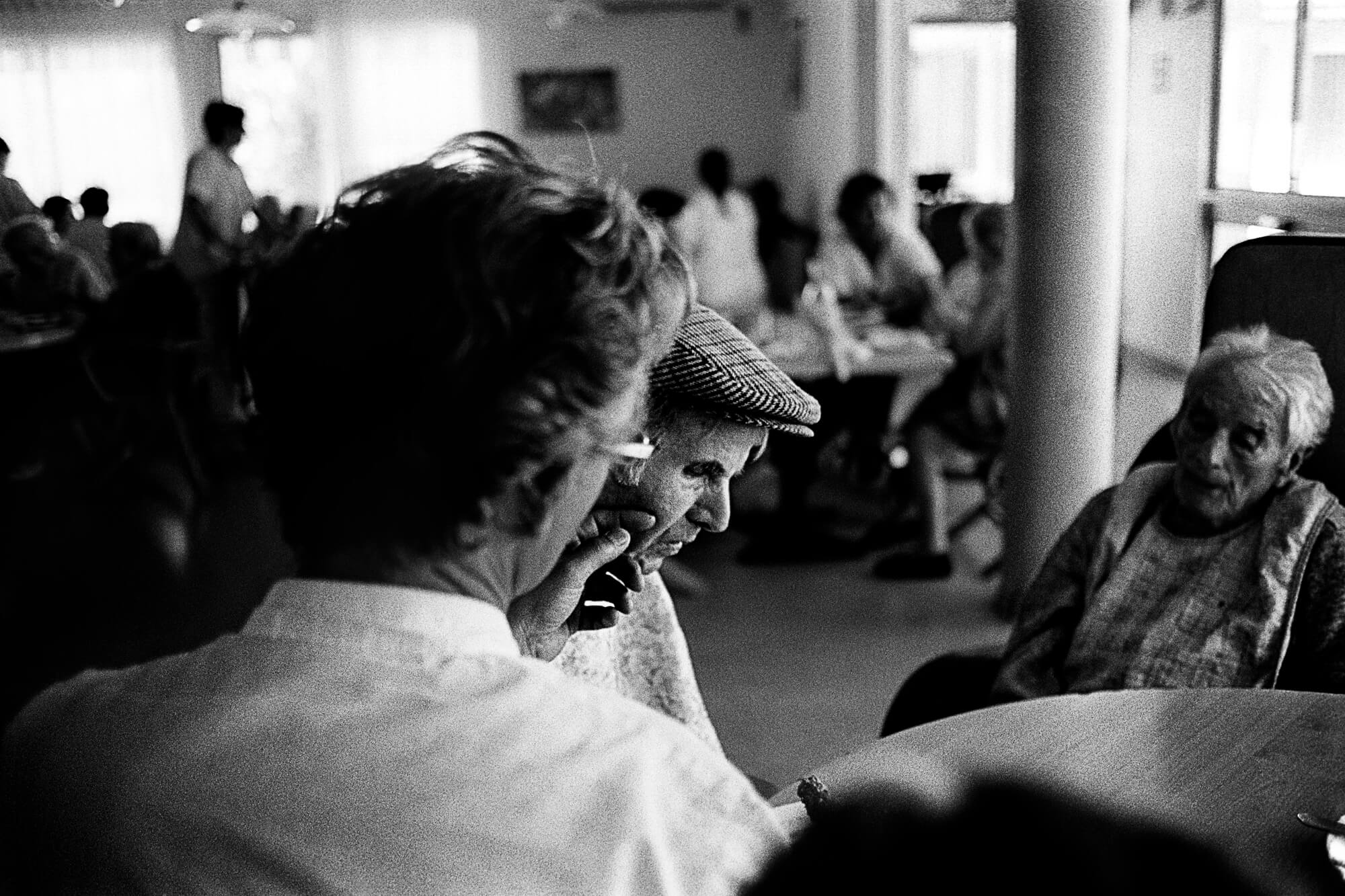
I didn’t want to do the picture with the same colors. So, I thought about how to translate the alteration of perception of reality she was living. I decided to use perished films. The colors were altered. As her health went down, I’d then realized entries of light on the film by opening the back of the camera. And finally, as she was totally insane, I put acid on some printed pictures to show that materiality of the neurons was going over the person, totally taking her away.
As she was totally insane, I put acid on some printed pictures.
The title of the book says “I look at you disappearing”, it was watching them disappeared years after years although they still were alive. I remember going to visit my grand-mother after she had a stroke. She had lost the way to talk. She was saying words in rows without meaning like “kitchen butterfly chair”. I had to take 5 minutes in front of the window as I was crying and I didn’t want her to know this because I didn’t know if she was aware of her situation.
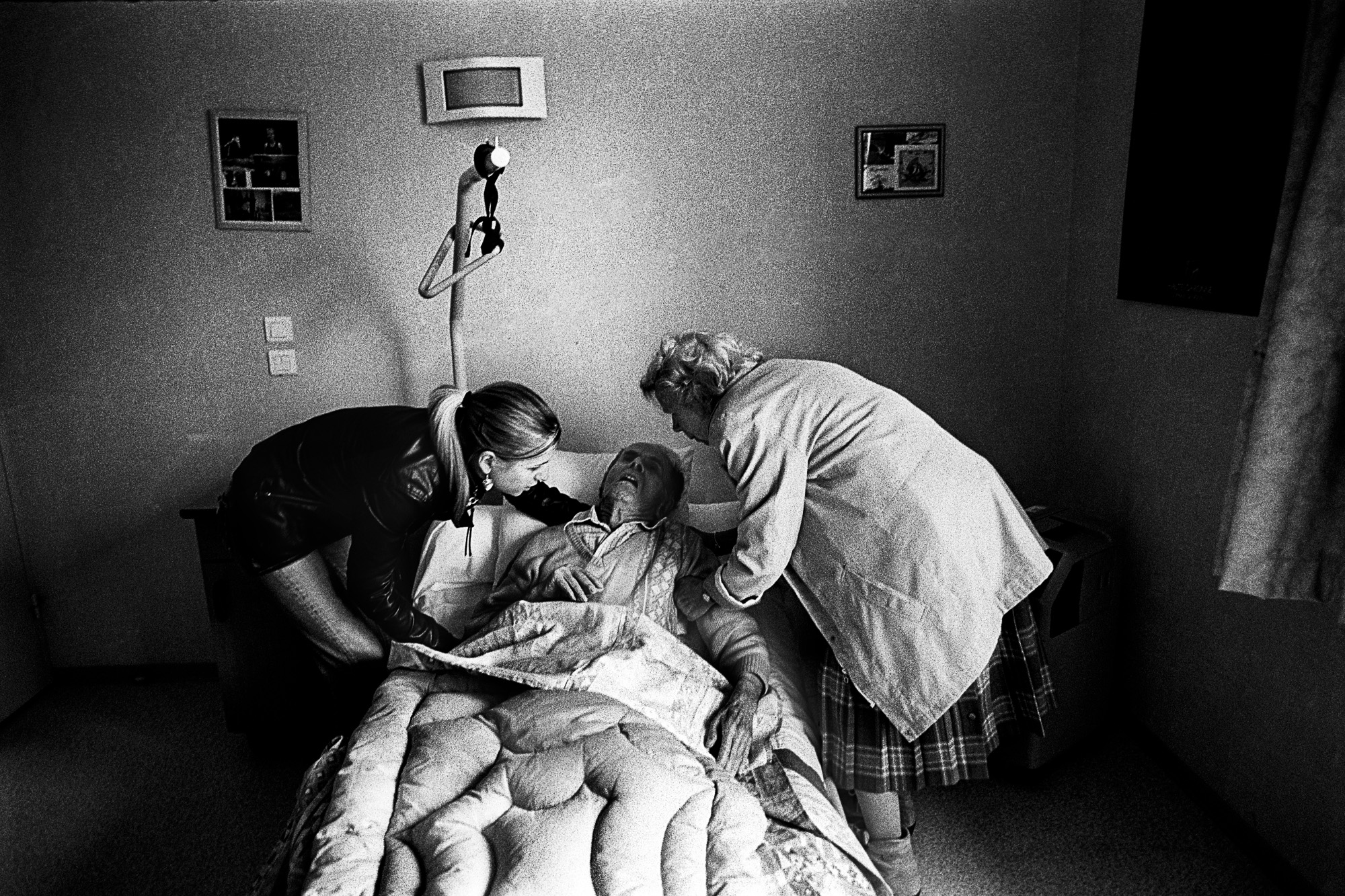
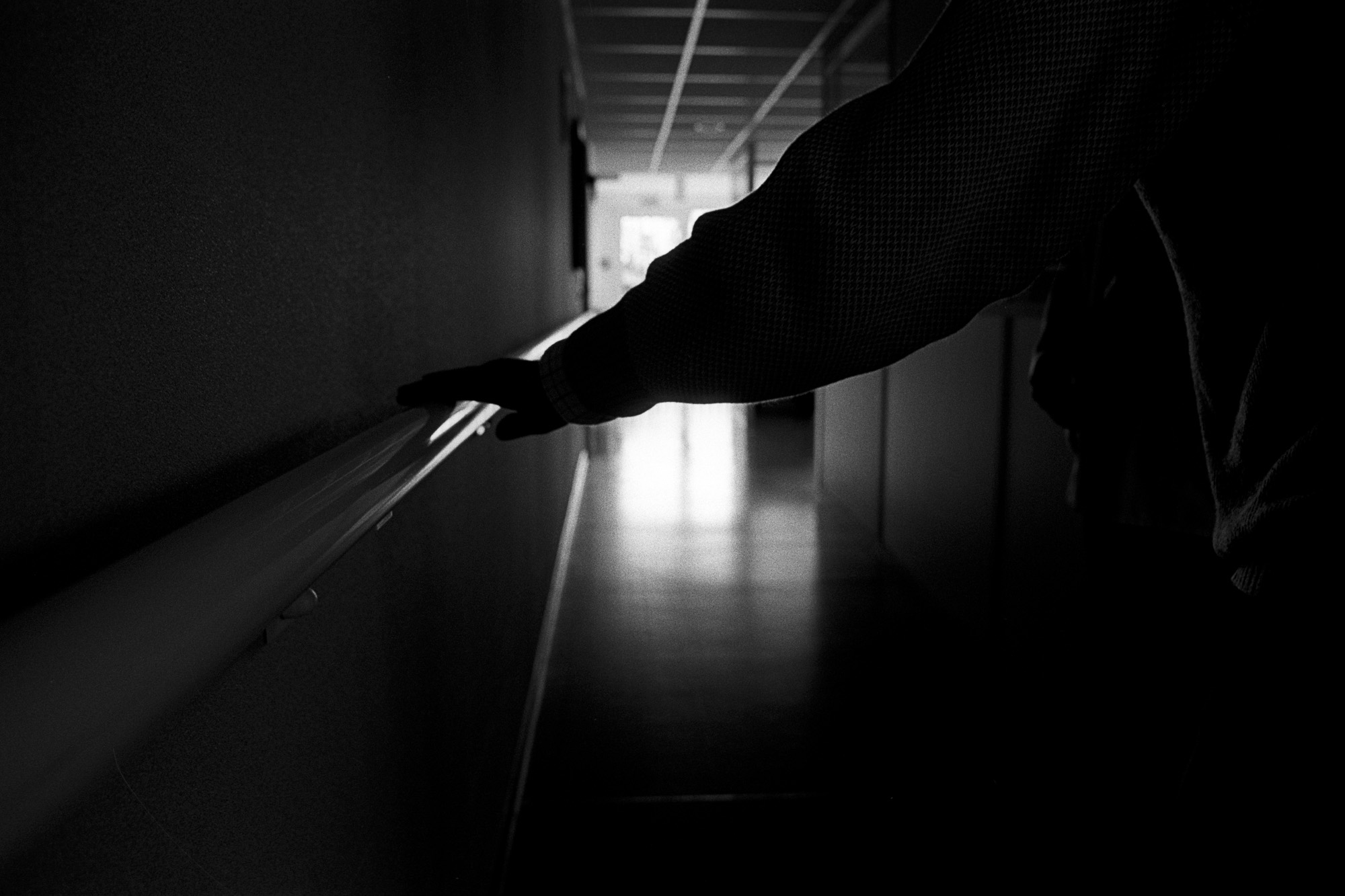
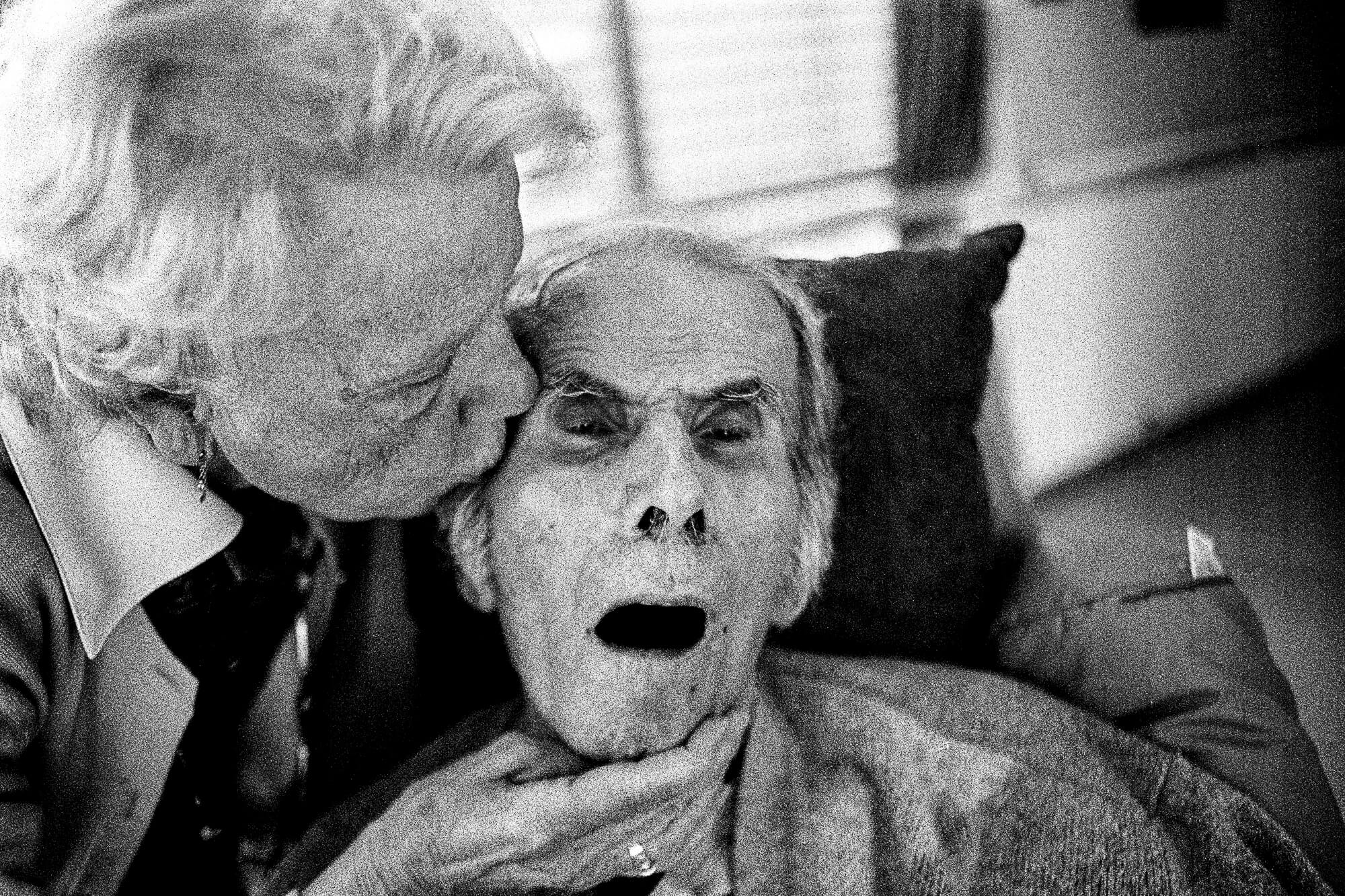
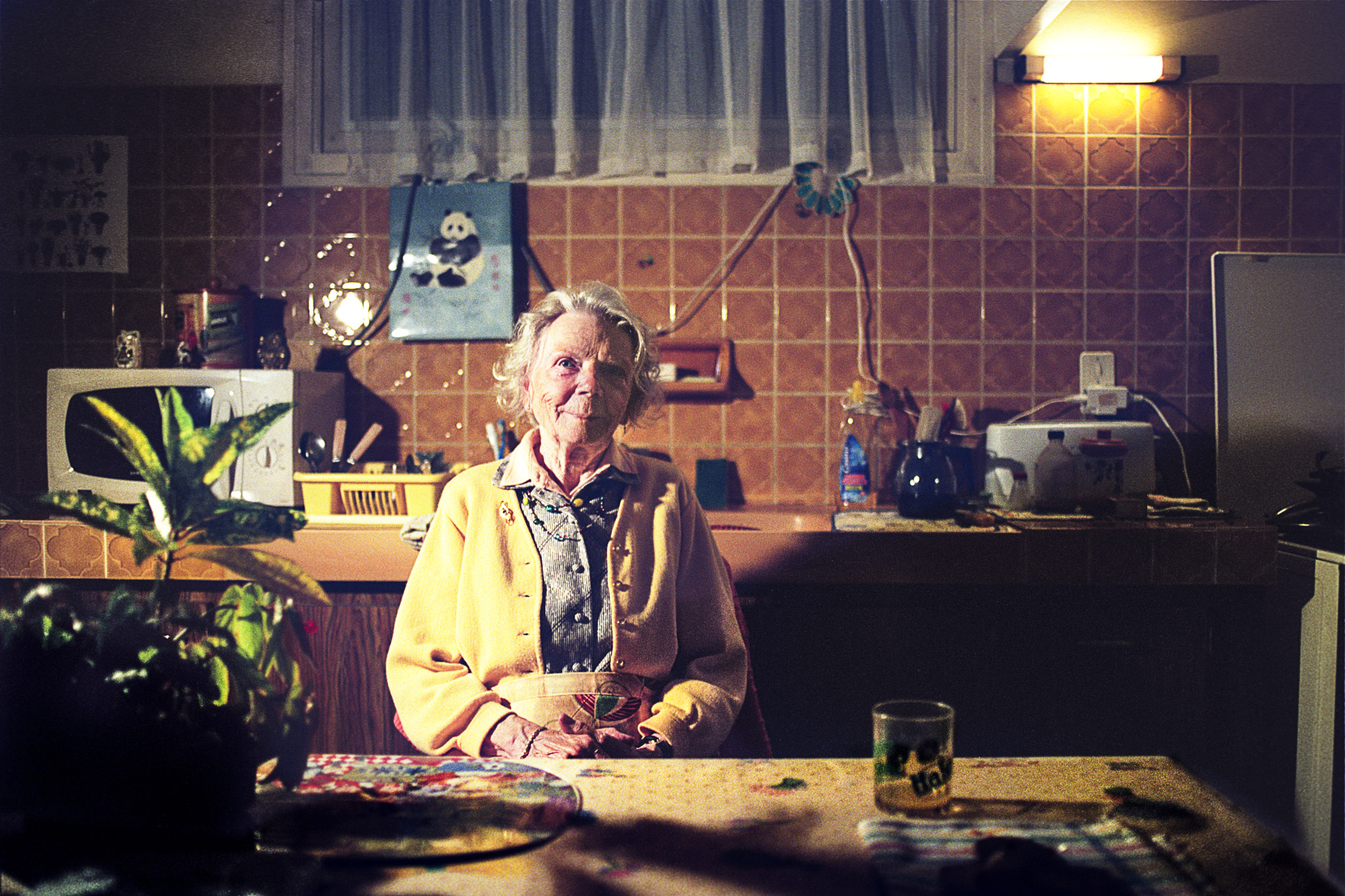
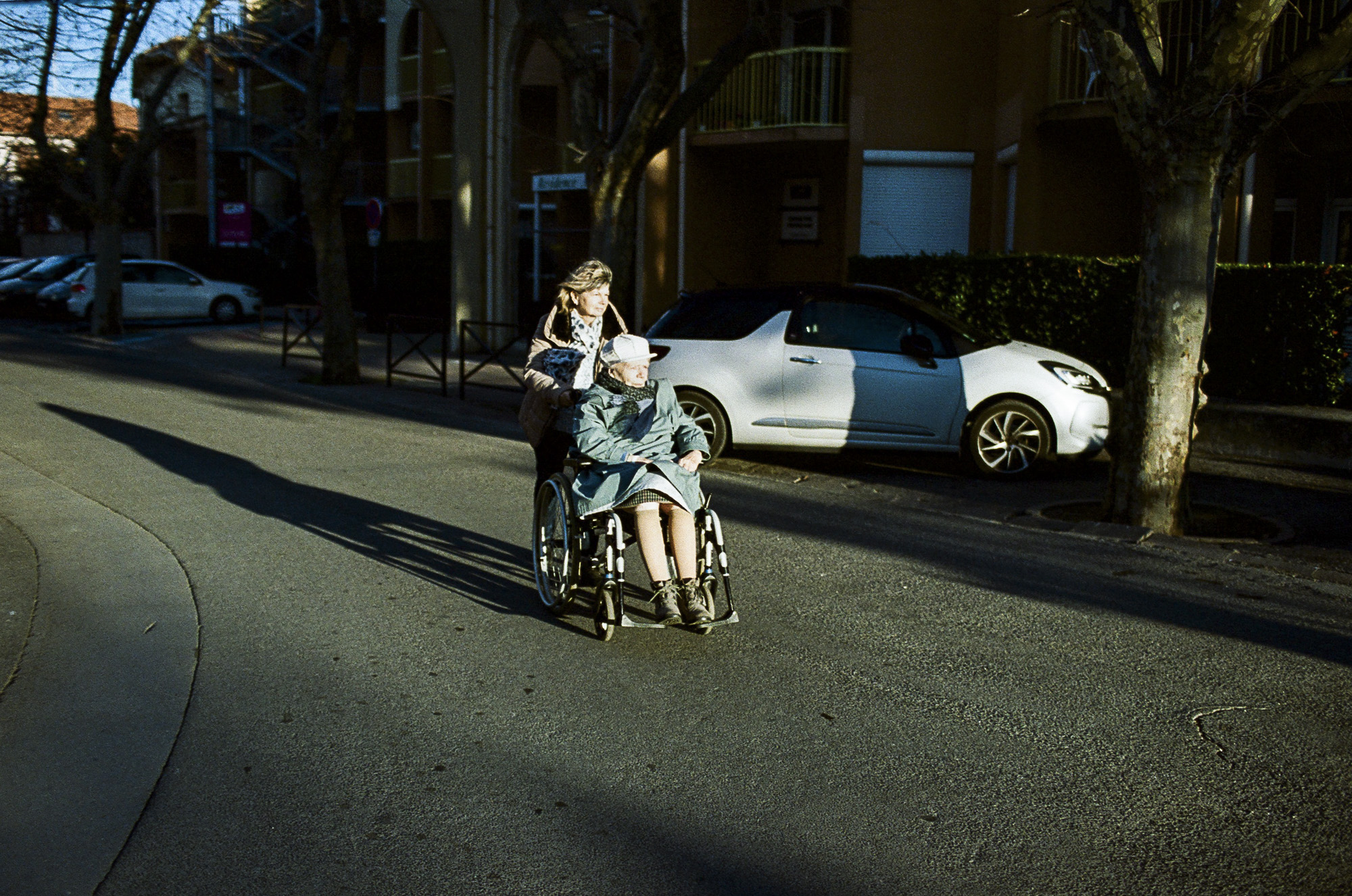
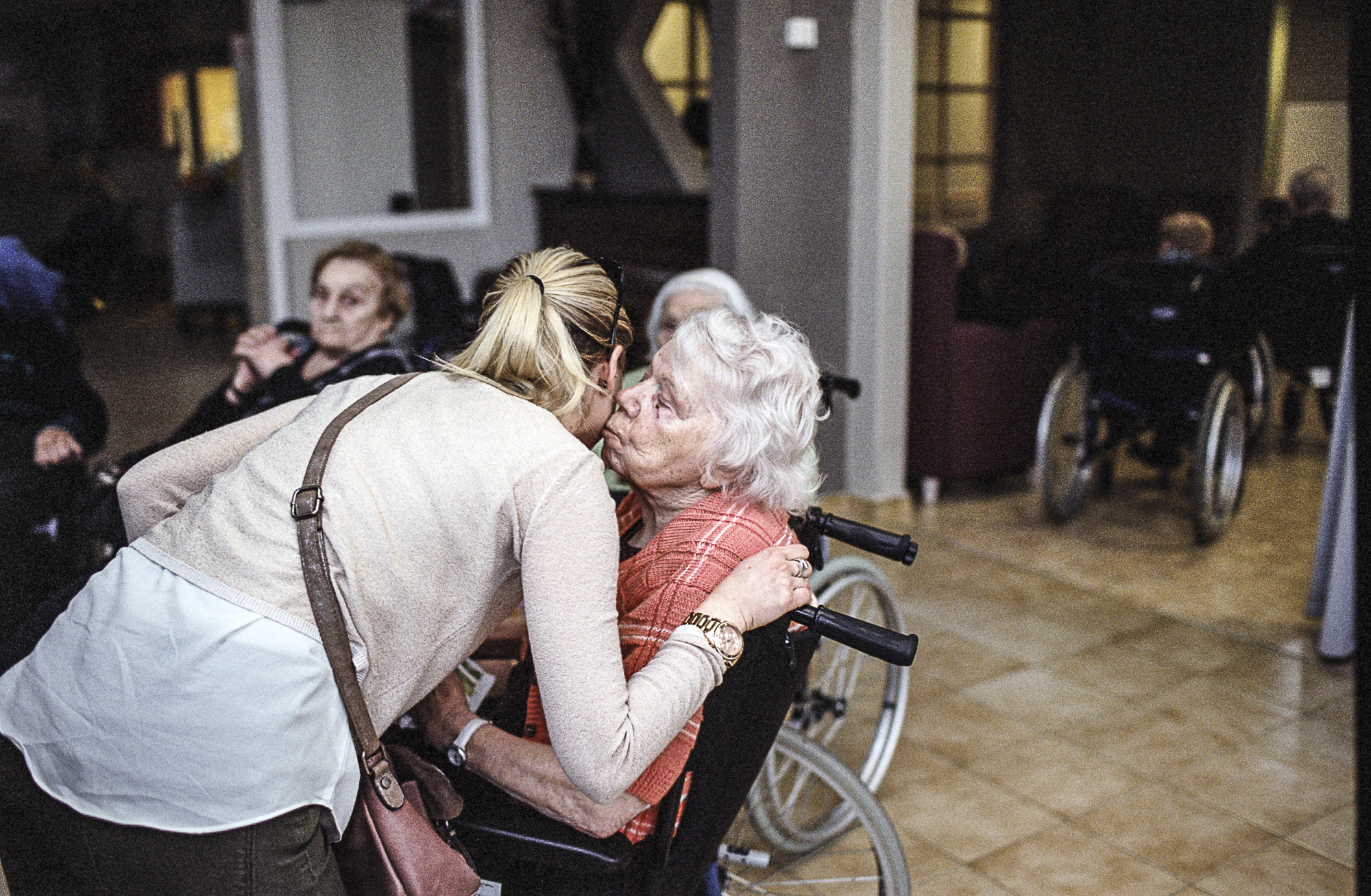
For me, death is a part of life. It’s hidden in our western societies and people don’t want to see it. But I think we have to face it and accept it, to reintegrate it in our society. Some people still can’t accept that idea and doesn’t want to face it. But disease and death are part of life.
Those who don’t have a similar experience will be able to find answers to questions about what is intergenerational transmission, how to face disease and death of our beloved ones and our own death. These are not happy questions, but definitely existential ones we need to address as people are becoming older in our society.
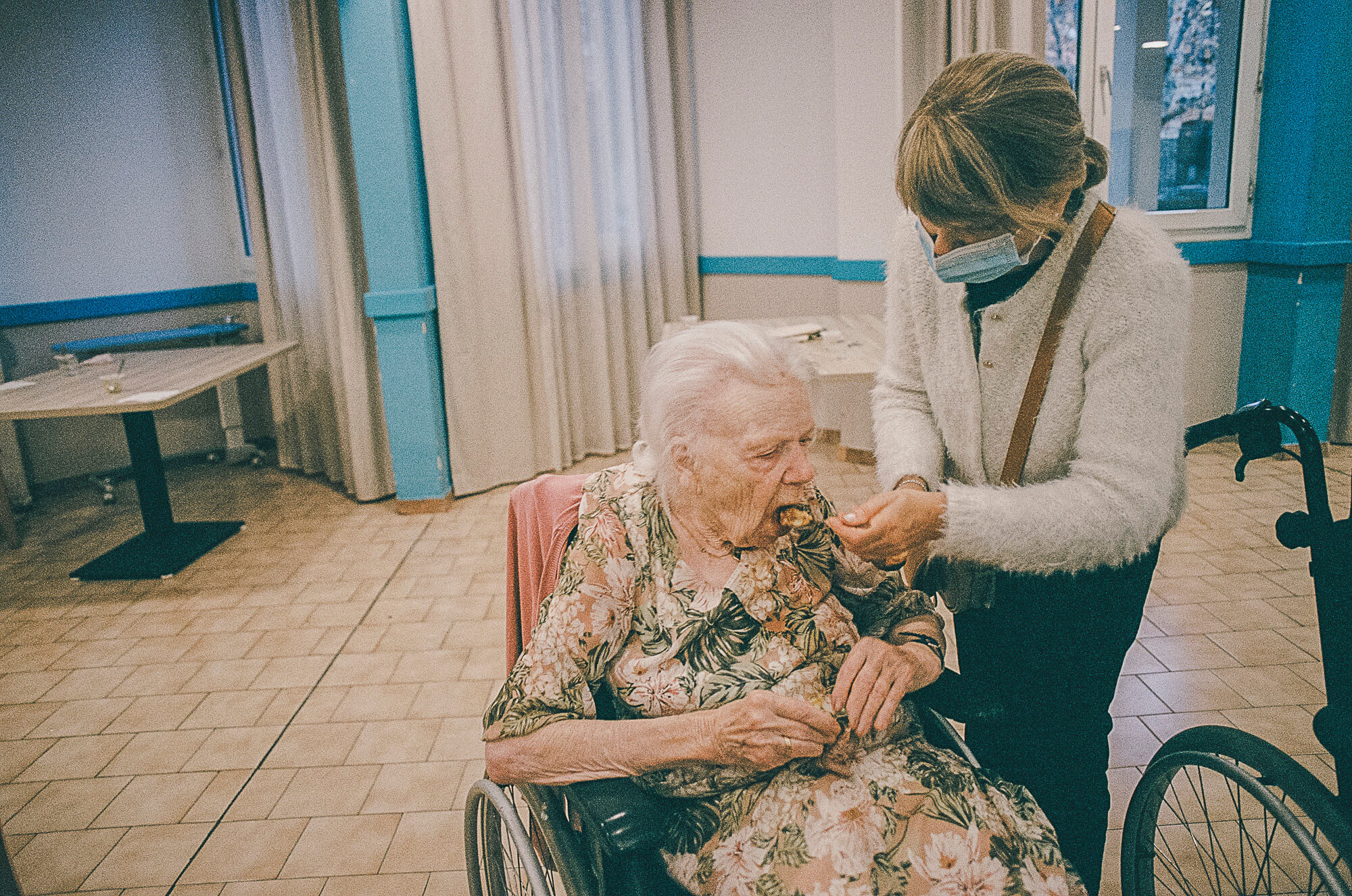
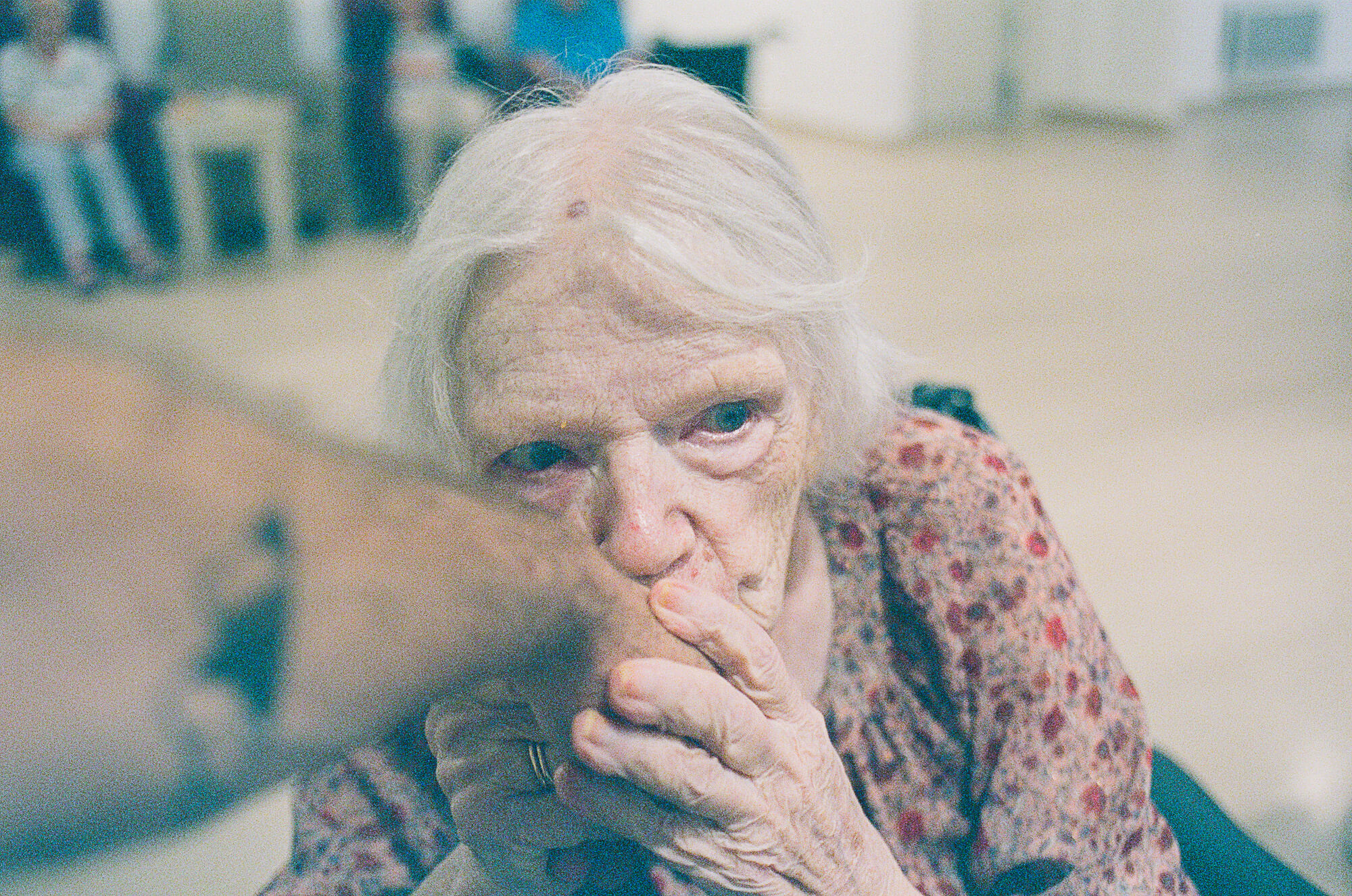
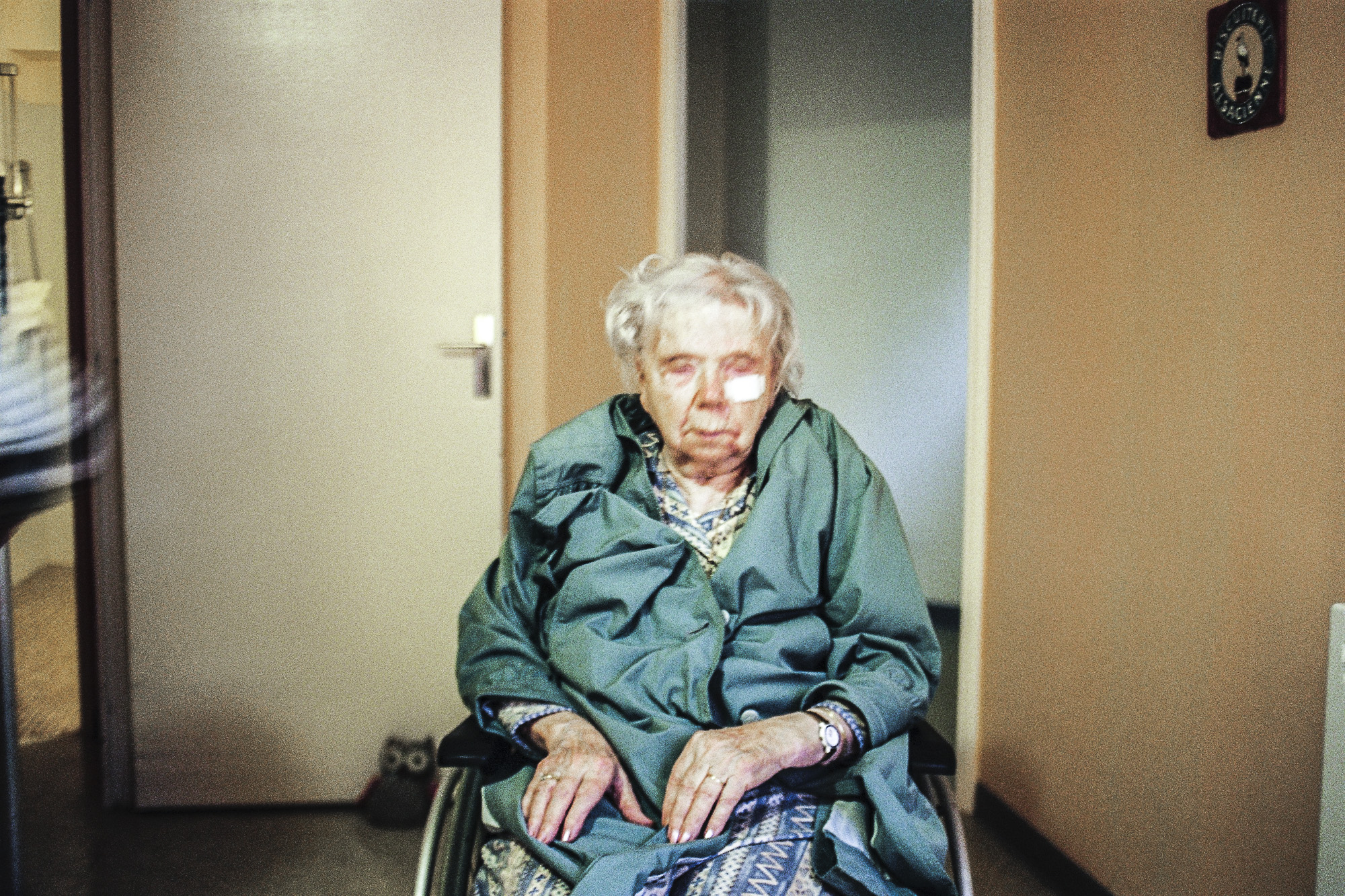
These questions arose before me as well. Would I like to be in these situations? And the answer is “no”. So I think if I get the same disease, I will choose euthanasia. Life must be lived in dignity. I do pictures in a lot of places and hiking in mountains in different places. I couldn’t wait for 10 years in a box of a retirement house. Then, I learned, or at least ask myself, are we supposed to make life last so much if the technics, the medicine allow it, but if we are unable to live in dignity.
I think if I get the same disease, I will choose euthanasia.
I am inspired by the Swedish photographer Anders Petersen and Seif Kousmate, a Moroccan photographer who uses acid on phis pictures to talk about global warming. What I love most about photography is an excuse to go in places where you’re not allowed to go. As I work for French national newspaper, I can be one day with migrants facing Covid-19 in squats in suburbs of Paris and two days later in the office of the French Ministry of Economy explaining how we are going to make debt to pass over this crisis.
My goal is to understand the world I’m living in, as it’s always changing and addressing essential questions, and then give my point of view on it.
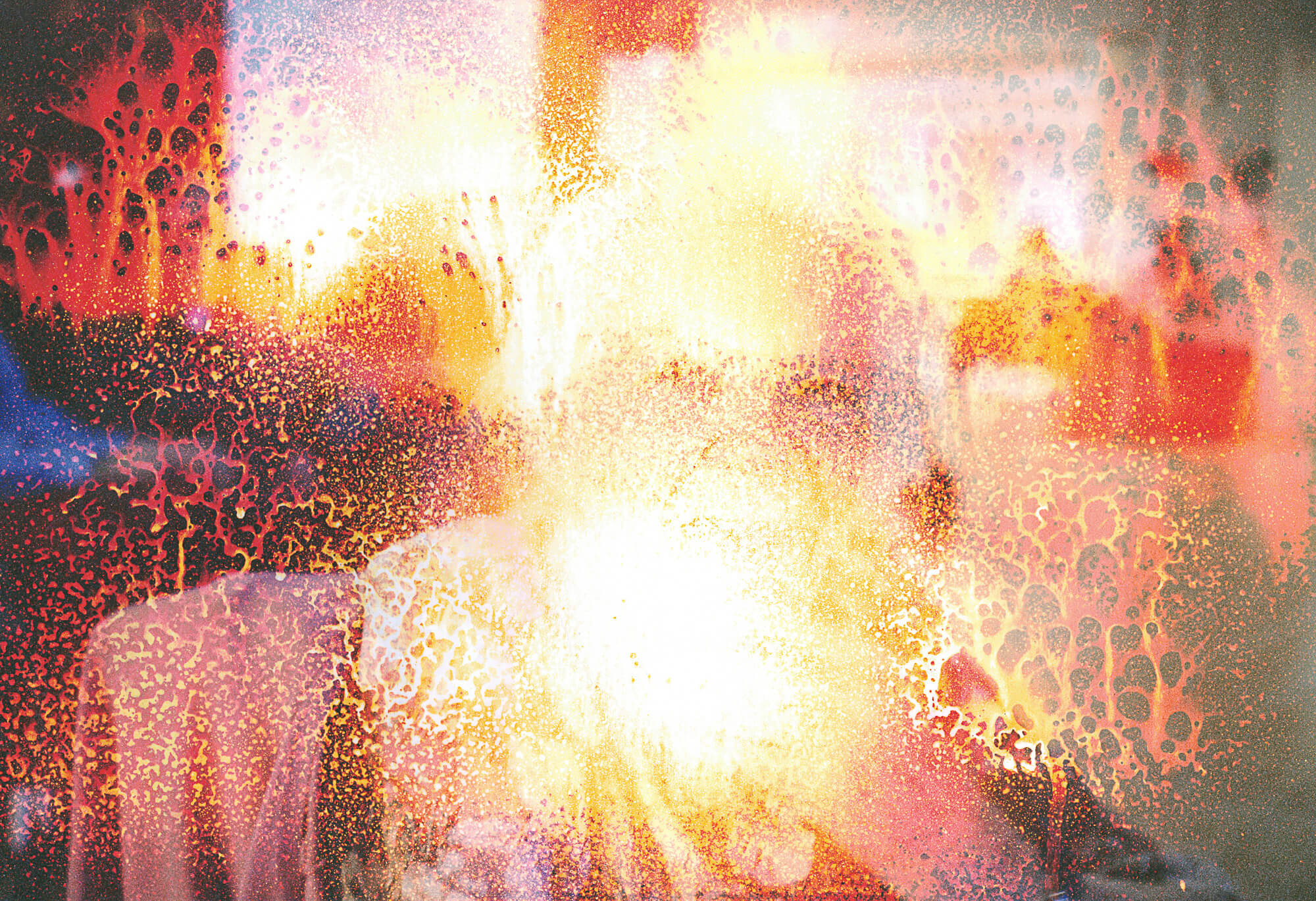
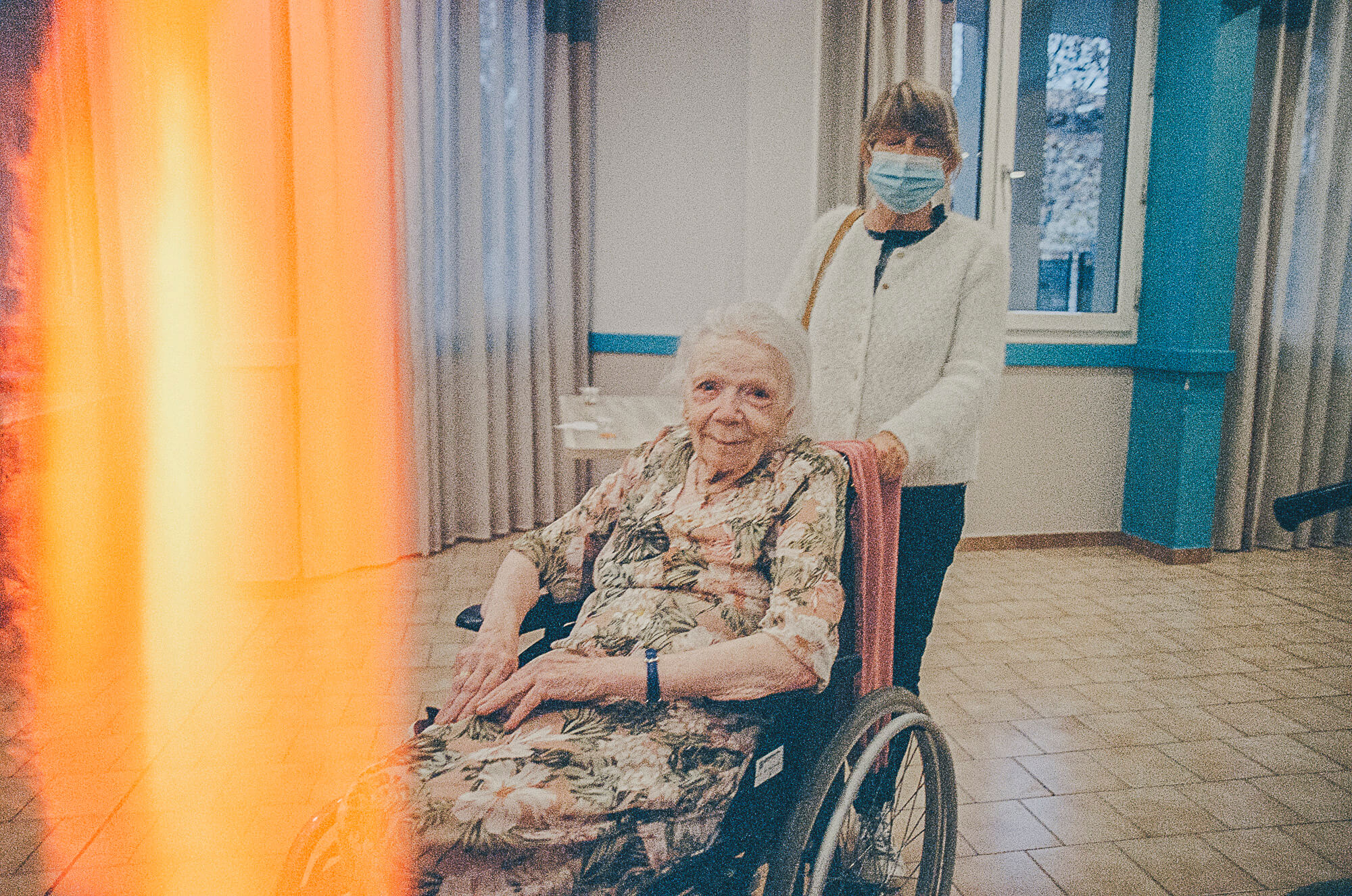
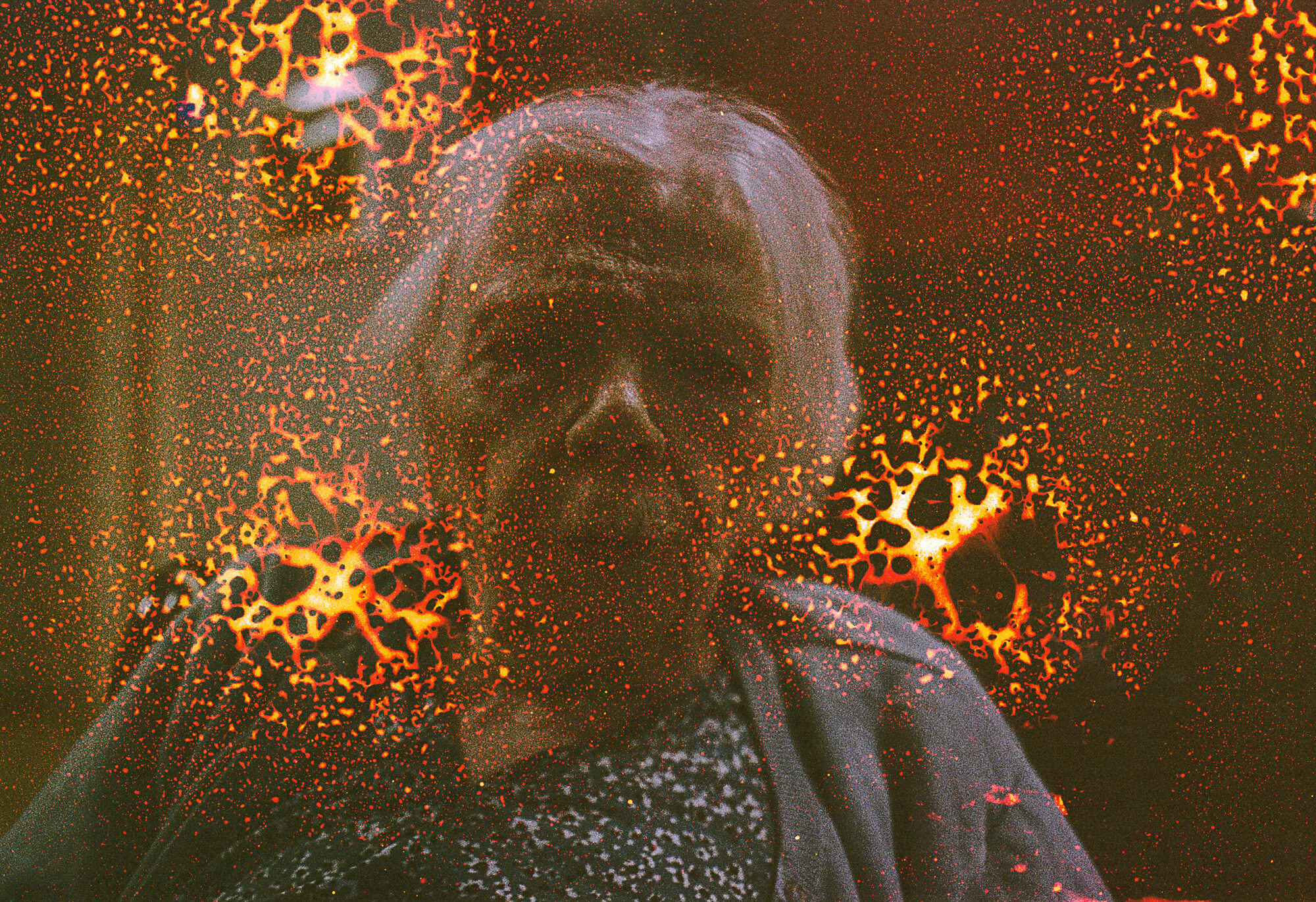
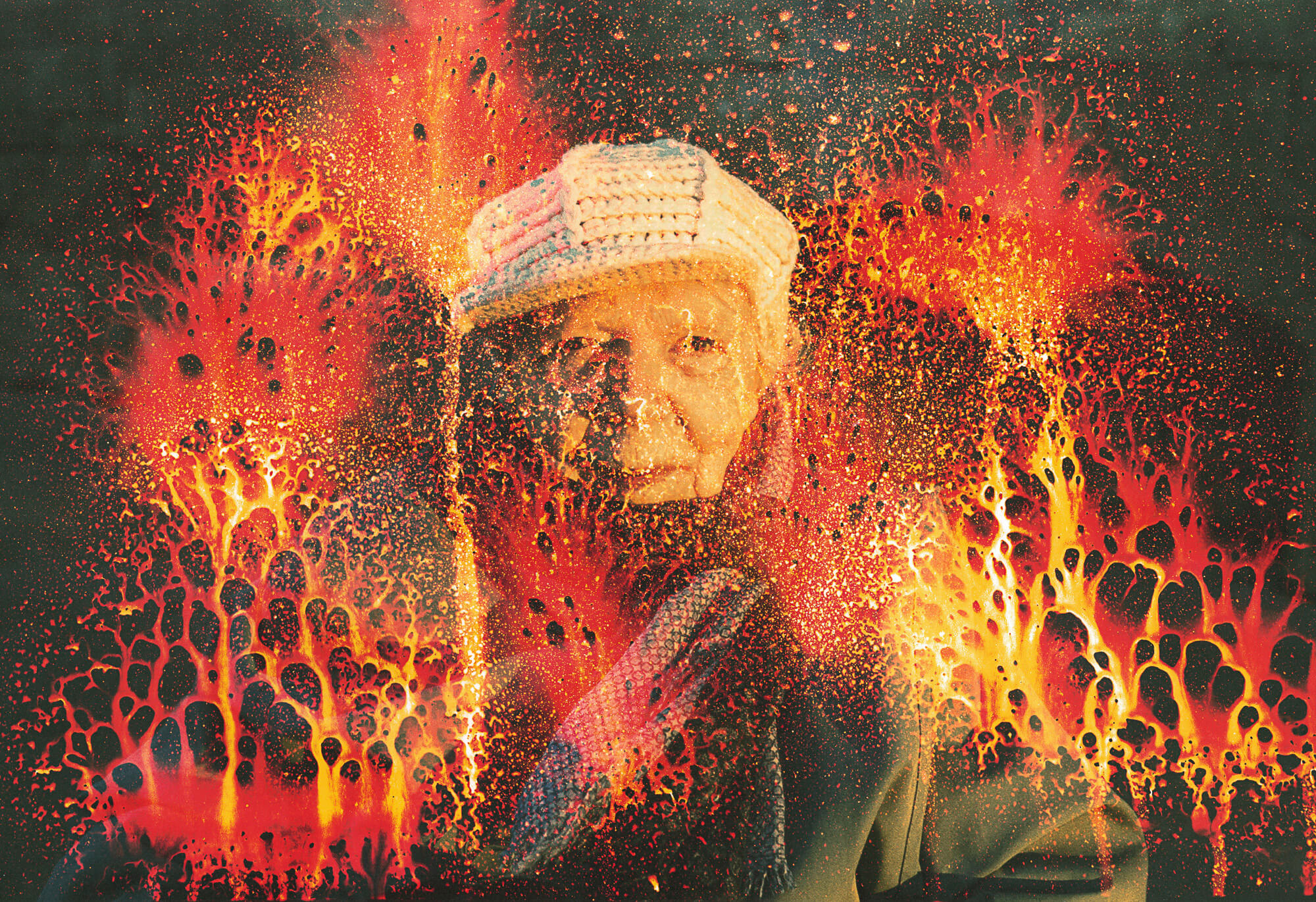
New and best
